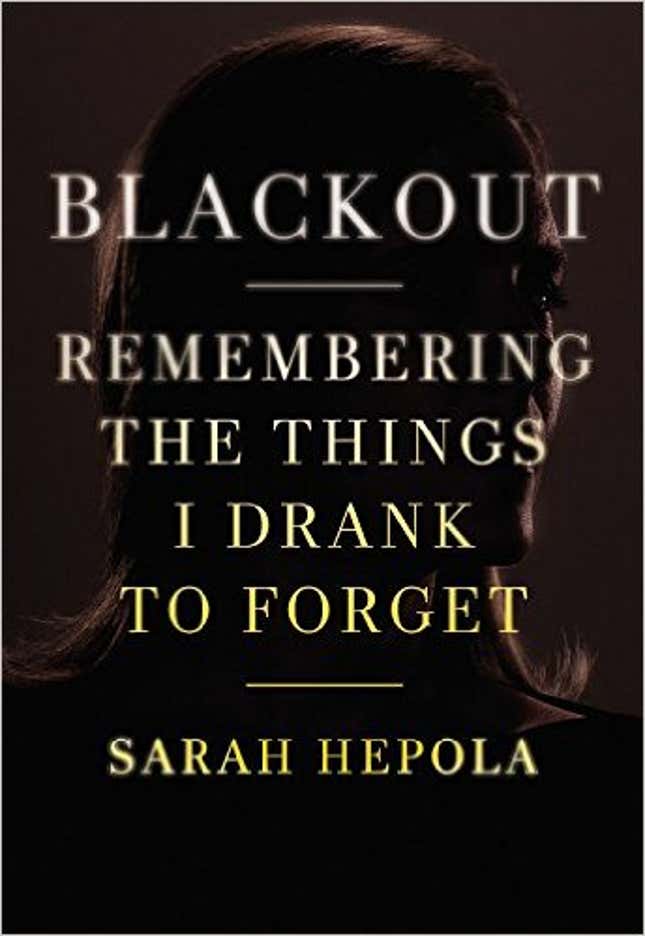Sarah Hepola's Blackout, For the Girls That Didn't Want to Be Protected
Latest

Much is made of the therapeutically self-limiting idea that society is colluding to make young women vulnerable; not enough is made of the odds that a girl will respond to bullshit by coming up tough. Female grit is believed to be rare and loud and somewhat mythological when it’s just as often the opposite, and the idea in general is due more serious credit, consideration, and concern. Luckily for us, it gets a good working-out in Sarah Hepola’s Blackout, a burnt-out sparkler of an alcoholism memoir and an immediate New York Times bestseller. The book makes a case for toughness as both a valuable alternate default for women as well as a terrific conduit to self-destruction—just as much as vulnerability, and perhaps even more so.
Hepola, who’s the personal essays editor at Salon, knows her way around the formulas of first-person writing: the performance of shame as a preface for redemption, the expectation (at least of female writers) that the narrator be vulnerable almost to the point of constant apology. She writes, “Personal essays work on this principle of inverted expectations. A writer friend described the arc like this: Let me tell you why it’s all their fault. Now let me tell you why it’s really mine.” That, neatly, is also the structure of the addiction memoir, whose first half draws on the things that get people addicted—the danger, the recklessness, the escape—and whose second half flattens out into something uncomfortably close to self-help. There’s something mealy about goodness, something gestural about the redemption that often closes out an arc.
In Blackout, Hepola can’t fully escape the narrative downside of sobriety, but her edit-sharpened instincts do a lot of work. The sober chapters that end the book do so quickly, and the blackout drinker in Hepola is still there, cracking jokes. Her style is bright, salty, cutting: when she writes about the year in Texas that she learned to bang out great stories by getting dead drunk first, she describes her work as having the “last-call honesty of someone pulling the listener close.” Sober, she’s retained that urgent tone.
But half of the grace and most of the draw of first-person writing is the way it can serve as vicarious fuck-up. You’ll read Blackout for the booze section, which is electric. Hepola grew up in upscale Dallas, “the land of rump-shaking cheerleaders and Mary Kay.” She was seven when she started sneaking beer from the refrigerator, her tiny synapses coming alive to “the fizz. The left hook of it. That wicked ka-pow.” She goes “woozy with rainbows.” She gets drunk for the first time on her sixth-grade summer, in an “arcade so epic it was called Star World. Dark rooms lit by neon, full of clinking machines and 25-cent shots at redemption. A bar for people who can’t drink yet.” She blacks out, “pierced with divine light.” It’s the first time she realizes what will become a defining factor of her shakily functional addiction: that you can go blank and keep cheerfully partying, and no one, unless they really know you, will know.
In college, at the comparatively liberal University of Texas, her reckless independence gets directed towards a cause. “Under cover of night and Keystone tall boys, I was full of righteous fire and brimstone,” she writes. A nascent feminist, she was “done sucking up to men.” But, as a college girl who drank too much, she had just started trying to fuck them. “I wore clothes that stank of hamper and Marlboro Lights, and it seemed to me that men got off on this new uncorseted persona,” Hepola writes. And it’s in college that she has her second big blackout and first monumental public embarrassment: on a game day, when she pulls down her pants and moons a car of friends in bumper-to-bumper traffic, waking up naked in her parents’ house under a ripped-down poster of James Dean.
-

-

-

-

-

-

-

-

-

-

-

-

-

-

-

-

-

-

-

-

-

-

-

-

-

-

-

-

-

-

-

-

-

-

-

-

-

-

-

-









































